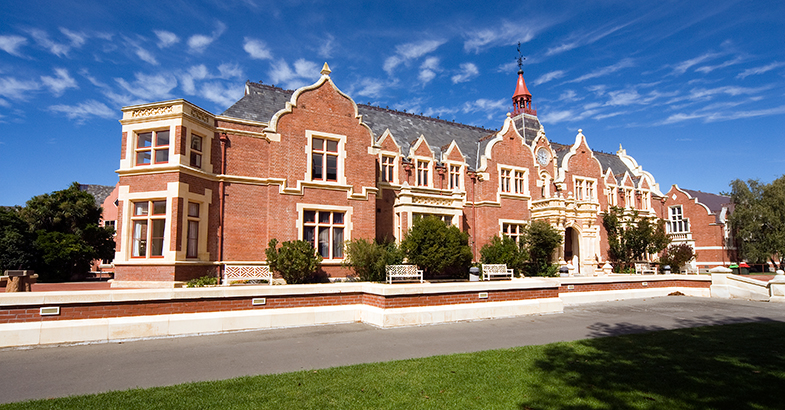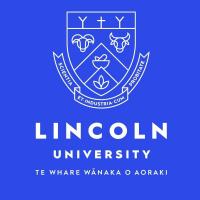Bachelor of Science in Conservation and Ecology
Lincoln University’s Bachelor of Science programme is applied and context-based. We aim to produce graduates who have a firm grounding in the basic sciences. These can be applied to processes in the environment, in ecosystems and biota or at the molecular level; helping you contribute to sustainable management and conservation of land, water and air and the country’s abundant natural resources. This degree has seven majors to choose from, depending on your interest and career aspirations. As our world changes, we need highly skilled individuals who can tackle the big issues. How do we feed the world while minimising environmental impact? How do we protect our environment from biological threats? How do we maintain good environmental quality? These are the pressing questions facing scientists of the future. As a Lincoln B.Sc. graduate, you can help answer them.
DESCRIPTION:
The Conservation and Ecology major of Lincoln's BSc focuses on giving you the practical skills, experience, and industry connections you will need to contribute to ecological and conservation activities of government and private agencies in New Zealand and beyond. Our courses include hands-on field trips and laboratories as well as weekly lectures. Courses in the first year will provide a solid grounding in the biological sciences – biology, ecology, plant and animal sciences. Practical-based courses will integrate the different focus areas of your degree at both second and third year levels. Practical experience is also available through paid summer scholarships working with ecologists and conservationists and through third year research placements. At Lincoln you’ll study with one of the most experienced groups of ecological researchers in a New Zealand university. Lincoln University's expertise in conservation and ecology include wildlife biology, entomology, plant ecology, urban ecology, restoration ecology, biosecurity, evolutionary biology, vertebrate and invertebrate pest management, and weed management – which are reflected in second and third year course options.
Intakes
- Feb
- July
Application Processing Time in Days: 30
Application Process
Minimum English Language Requirements
| English Level Description | IELTS (1.0 -9.0) | TOEFL IBT (0-120) | TOEFL CBT (0-300) | PTE (10-90) | |
|---|---|---|---|---|---|
| Expert | 9 | 120 | 297-300 | 86-90 | |
| Very Good | 8.5 | 115-119 | 280-293 | 83-86 | |
| Very Good | 8 | 110-114 | 270-280 | 79-83 | |
| Good | 7.5 | 102-109 | 253-267 | 73-79 | |
| Good | 7 | 94-101 | 240-253 | 65-73 | |
| Competent | 6.5 | 79-93 | 213-233 | 58-65 | |
| Competent | 6 | 60-78 | 170-210 | 50-58 | |
| Modest | 5.5 | 46-59 | 133-210 | 43-50 | |
| Modest | 5 | 35-45 | 107-133 | 36-43 | |
| Limited | 4 | 32-34 | 97-103 | 30-36 | |
| Extremely Limited | < 4 | < 31 | < 93 | < 30 |
Job Opportunity Potential
The University regularly assesses the job market for new areas of employment demand such as:
- Agriculture and horticulture
- Society, tourism and sport
- Science
- Environment
- Design and technology
- Business and commerce.
Recruitment
We advise on effective ways of connecting with Lincoln students and graduates, and for raising your profile. We offer a range of services to help you:
- NZUniCareerHub to advertise your graduate programmes/vacancies/internships/scholarships to students and graduates
- Targeted email alerts
- Presentations, drop-ins and information sessions on-campus
- Career and networking events
- Poster distribution - electronic and paper (A4 only)
- Interviews on-campus.
PSW Opportunity
- During study, all students on a student visa can work up to 20 hours per week during semester and full time during vacations.
- After completing Level 7 Bachelor’s Degree or Higher Qualification, a student will get a three years open post-study work visa.
- After completing Level 8 Post Graduate courses of 1 year, students get 1 year PSW.
Admission Requirement / Eligibility Criteria
This is New Zealand's University Entrance qualification and is the minimum requirement to qualify for admission to a bachelor degree or to some of our diplomas. To recognise the disruption caused by COVID 19 there are some changes to UE for 2020. To qualify in 2020 you will need:
- NCEA level 3 (i.e. a minimum of 60 credits at level 3 or above plus 20 credits at level 2 or above); and
- A minimum of 12 credits at level 3 or higher in each of three approved subjects (this applies to 2020 only. In other years, 14 credits in each of three approved subjects is required); and
- Literacy – 5 reading credits and 5 writing credits at Level 2 or higher from standards on the NZQA list of university entrance literacy standards; and
- Numeracy – 10 credits from standards on the NZQA list of numeracy standards, or all three of the following unit standards: 26623, 26626, 26627.
For More Information Please Connect Our PSA Counselor
- Course Type: Full Time
- Course Level: Bachelors/UG Degree
- Duration: 03 Year
-
Total Tuition Fee:
95400 NZD
Annual Cost of Living: 20000 NZD
Application Fee: N/A
Similar Programs
- Bachelor of Commerce (Horticulture) at Lincoln University
- Bachelor of Viticulture and Oenology at Lincoln University
- Bachelor of Science (Individual) at Lincoln University
- Bachelor of Science in Food Science at Lincoln University
- Bachelor of Science in Environmental Science at Lincoln University
- Bachelor of Environmental Policy and Planning (Honours) at Lincoln University

